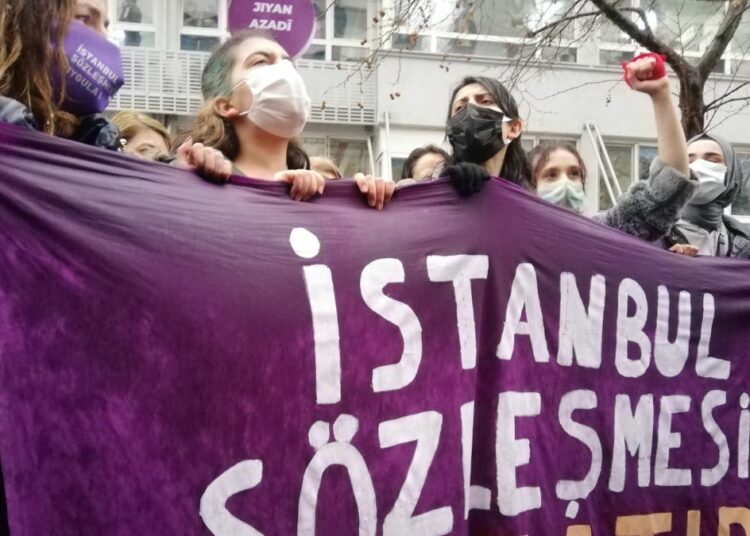“Powerful Families, Powerful Society” is Turkey’s motto, says its Director of Communications Fahrettin Altun. It is what you would expect in a nation whose president has spoken openly of the “holiness” of the family and whose constitution declares, “Family is the foundation of the Turkish society,” and “the State shall take the necessary measures and establish the necessary organization to protect peace and welfare of the family, especially mother and children.”
One of those measures was taken on March 20, 2021, when Turkey withdrew from the Istanbul Convention, a 2011 European treaty to which it was the first signatory and which was subsequently ratified by 35 nations. In an official statement, Turkey explained that while the treaty was “originally intended to promote women’s rights,” it was “hijacked by a group of people attempting to normalize homosexuality—which is incompatible with Turkey’s social and family values. Hence the decision to withdraw.”
What Turkey did not withdraw from, continued the statement, is its commitment to end violence against women. “The decision to withdraw from the Istanbul Convention by no means denotes that Turkey ‘compromises the protection of women.’ The Turkish State has continously stressed that the country will not give up on its fight against domestic violence by quitting the Convention…. Turkey will continue protecting the safety and the rights of all women,” and “fighting domestic violence with the principle of zero tolerance will remain on top of the government’s agenda.”
Turkey is hardly alone, the statement added, in its “serious concerns about the Istanbul Convention. Six members of the European Union (Bulgaria, Hungary, Czechia, Latvia, Lithuania and Slovakia) did not ratify the Istanbul Convention. Poland has taken steps to withdraw from the Convention, citing an attempt by the LGBT community to impose their ideas about gender on the entire society.”
The Istanbul Convention is yet another example of an international human rights instrument ostensibly designed for the protection of women but infused with ideology that undermines the family and women’s indispensable role therein. Speaking to the Federalist Society nearly two decades ago, Professor Richard Wilkins referred to a “curious new development” when he observed, “In order to improve the social and political standing of women—a goal that is quite laudable—international law has become unusually hostile to long-standing notions of marriage, the natural family and the rearing of children.”
Despite important protections offered to women, the Istanbul Convention goes off the rails in defining “gender” as “the socially constructed roles, behaviours, activities and attributes that a given society considers appropriate for women and men” (article 3), and in calling for the “eradicating [of] prejudices, customs, traditions and all other practices… based on… stereotyped roles for women and men” (article 12). Such provisions spurn the timeless truth that the family is society’s “natural and fundamental group unit” (UDHR) grounded in what Pope Francis refers to as “complementarity between man and woman” and resulting in “a unique, natural, fundamental and beautiful good for people, families, communities and societies.”
But Turkey’s withdrawal “sparked both domestic and international outrage,” reports one news source. The firestorm included angry protests in Istanbul and Ankara, as well as sharp criticism from abroad. The Council of Europe’s Secretary General called it “deplorable,” “a huge setback,” and “devastating news,” while the EU’s foreign policy chief declared that “we cannot but regret [it] deeply and express incomprehension.” Germany’s Foreign Ministry insisted it “sent the wrong signal to Europe and to the women of Turkey.” And President Joe Biden termed it “unwarranted,” “deeply disappointing,” and a “disheartening step backward”—words fraught with irony in describing what is in reality Turkey’s encouraging step forward to protect the foundation of its society.
Responding to the spate of reproofs and rebukes, Turkish Justice Minister Abdulhamit Gul tweeted, “We continue to protect our people’s honor, the family and our social fabric with determination.” At least one nation on earth is honoring its treaty obligation undertaken in the International Covenant on Economic, Social, and Cultural Rights, which calls for “the widest possible protection and assistance” to “be accorded to the family.”




















Discussion about this post